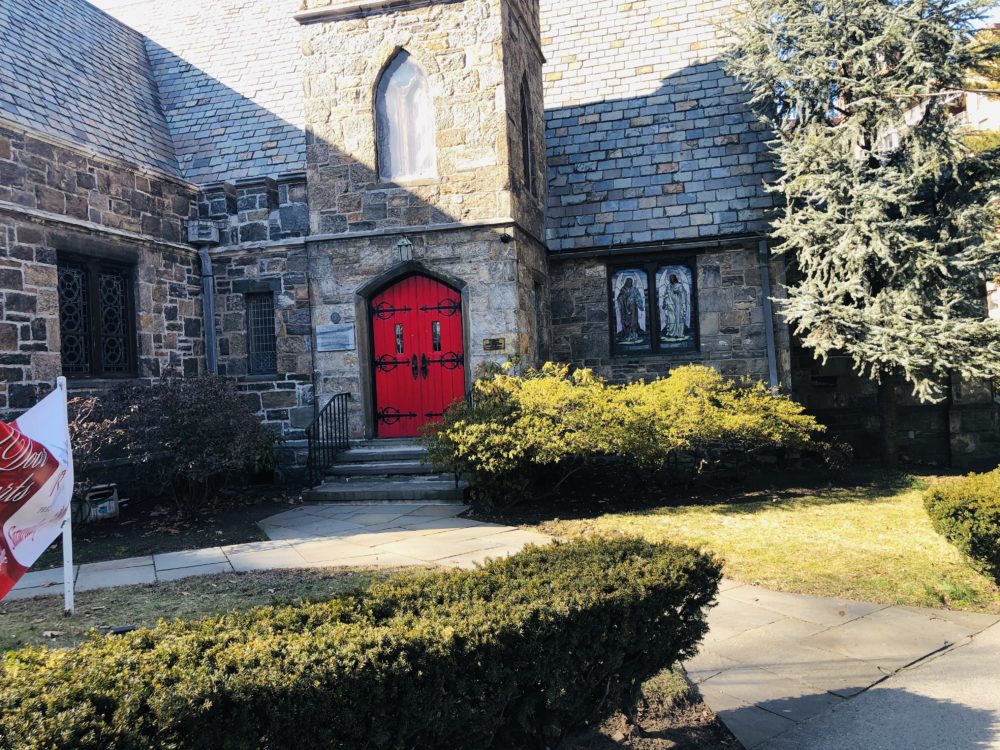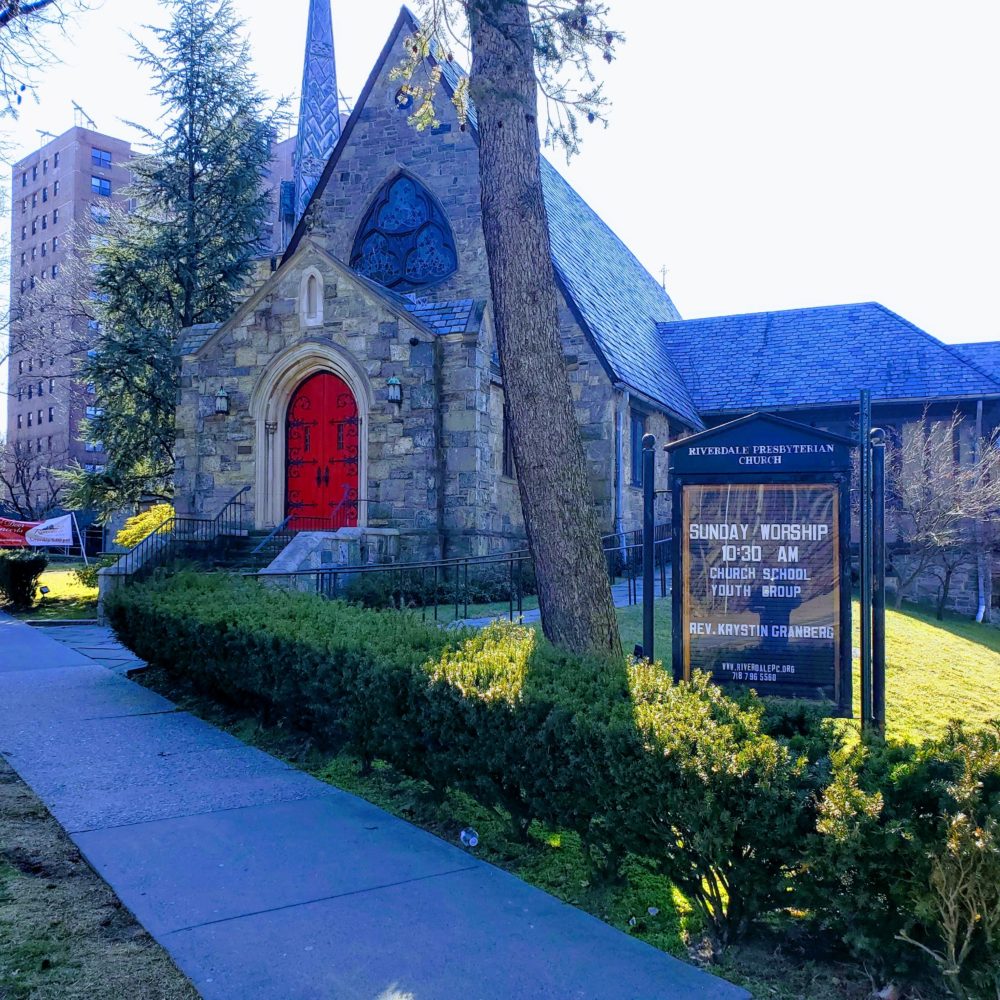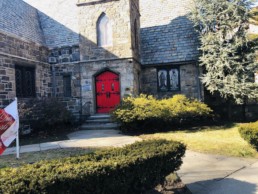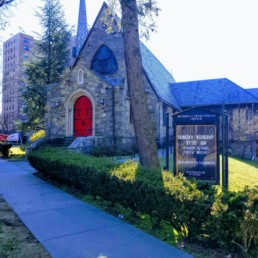Blessed are the Top 10
Blessed are the Top 10
Kelly Davis | kwd2111@columbia.edu

It’s Oscar Sunday, and in a Gothic-style church in the Riverdale neighborhood of the Bronx, people of all ages and races sit patiently in the quiet sanctuary. Reverend Krystin Granberg rests her arms comfortably on the pulpit as she begins her sermon for the 10:30 a.m. service at Riverdale Presbyterian Church, located at 4765 Henry Hudson Parkway. Her topic is not a Bible verse. Her message is not fire and brimstone.
“I love Oscar Sunday even more than Super bowl Sunday,” Granberg begins. Church-goers respond with a chuckle and the solemn faces in the room seem to be at ease a little bit.
Much to my surprise, Granberg’s message is centered around today’s pop culture. She speaks about the trend of “top 10” lists.
Top 10 movies of 2019
Top 10 vegan restaurants in NYC
Top 10 ways to get fit in the new year
But religion isn’t far behind. “Jesus has a top 10 list, too,” she remarks.
She proceeds to introduce a familiar passage from the bible most commonly known as the beatitudes.
“Blessed are the poor in spirit, for theirs is the kingdom of heaven.”
“Blessed are those who mourn, for they will be comforted.”
“Blessed are the meek, for they shall inherit the earth.”
Matthew 5: 3-5
She compares the beatitudes with the to do lists that modern-day culture sets for us to be successful. Granberg explains that the bible verses and other similar scriptural references are not the top 10 lists like the world gives us, but rather a list of things that have already been done.
When Jesus recites the beatitudes, he is not saying what believers must do in order to be good Christians. Rather, he is explaining what the kingdom of God presents, as gifts, to those who believe in Him and his message of salvation.
Tying her message back to the Oscars, she recalls one of her favorite movies, “Monty Python’s Life of Brian.” While the movie offered her powerful lessons that she still holds today, Brian, the farcical main character, was just as persecuted as Jesus was for spreading the message of salvation. Brian’s struggles in various scenes of the movie reflect Jesus’ own challenges.
Granberg reminds the congregation that they should not ask God what to do to be worthy of His love, instead to know that any shackles of anxiety, fear, depression and worry have already been broken. The kingdom God is about being rather than doing, she says. We are already blessed, and there is nothing more that we need to do to be approved. She adds that the only thing the Lord requires of us is to, in the words of the Prophet Isaiah, do justice, love kindness and walk humbly with the Lord.
She also says that if she had the chance, she would write additional beatitudes and include things like:
Blessed are the truthtellers
Blessed are the caretakers
Blessed are the peacemakers
And above them all: Blessed are the rulebreakers, who advocate for the most destitute of society.
She says that she was perplexed that so many people are confused with what others are not doing. This creates a culture of people that are so anxious about what they are or not doing, they end up projecting their feelings of failure onto others. Referring back to the to do list, Granberg points out that church gives everyone an opportunity to be critical.
As the sermon wears on, she goes back to the phrase of what the bible requires of us: to do justice, love kindness and walk humbly with the Lord. She cites biblical figures that ministered to lepers and preached to them about the love of God.
Closing her sermon, Granberg says that in trying to make a difference in this world, we can start by impacting each and every person we meet. She pleads that in this world of chaos and turmoil, her congregation preaches cheerfulness and radical love.
Ringing of the Bells
Ringing of the Bells
Kelly Davis | kwd2111@columbia.edu

Just minutes before the Sunday morning service, Riverdale Presbyterian Church in the Bronx feels more like a mini social hour than a sanctuary. The gothic-inspired structure under a great dome is readying itself for the sermon.
On the right side of a vast altar sit dozen choir members, men and women, in long red gowns with white trimmings around their necks.
Riverdale Presbyterian, located at 4765 Henry Hudson Parkway, is a church diverse in both age and culture. On this Sunday morning, Blacks and Whites, Asians and Hispanics chat together in wooden pews that form a semi-circle around the great altar. A large loaf of bread and a goblet of wine are placed intentionally at the center of the altar, ready to be broken and eaten as a memorial to the body of Christ.
Between gaps of empty pews, huddles of three or four congregants, mostly women, whisper and chuckle quietly, with familiarity of old friends catching up.
“They better ring these bells soon,” a middle-aged woman mumbles under her breath to the man sitting next to her. “It is already 10:33 a.m.”
Churchgoers continue to speak amongst themselves for a few more minutes until a distinct, piercing sound fills the air, leading to a sudden change in the atmosphere.
Cling-cling. Pause. Cling-Cling. Pause. Cling-Cling.
The hand bells sound as though they are only a few feet away, but the bells and whoever rang them are out of sight. Some churchgoers bow their heads in solemn reverence, others simply look off into the distance.
The ringing continues for approximately 20 seconds.
A few moments later, Reverend Krystin Granberg stands and offers a warm greeting, followed by an organ playing the hymn, “Round about the Mountain.” The attendees listen quietly, before standing and reciting the “call to worship,” in a call and response format as Granberg takes her seat at the altar.
Granberg: Lord, open unto me
All: Open unto me--- light for my darkness
After the scriptures are recited, the sermon is preached and the elements of the bread and wine are served, the service is over.
Cling-Cling. Pause. Cling-Cling. Pause. Cling-Cling.
Granberg stands from her seat at the altar, walks towards the center of the church and continues down the center aisle to stand by the entrance of the sanctuary.
A hymn called, “Fugue in F Major,” plays in the postlude, a final piece of music at the end of a service. The congregants observe the organist as his notes get higher and more powerful until a final elevated, beautiful chord holds for a breath as the church erupts in a rapturous applause.
Most members head down to the basement for their weekly coffee hour as the service concludes.
Granberg keeps her post at the door, greeting people as they exit. The church seems livelier than before with people smiling and laughing joyfully, a stark contrast from the hushed voices and solemn looks over the last hour and a half.
As is the practice at other Protestant churches, the ringing of the bells at Riverside Presbyterian symbolizes both the start and end of service. Many Christian traditions see the bell as a call to worship or prayer. This tradition of the ringing of bells is also seen in the Catholic church, meant as a signal that the mass is about to begin. It was at the moment when the bells rang that all the whispers in the sanctuary came to a pause and a solemness fell over the congregants, as though the bells were a conscious switch from fellowshipping with friends to a posture of worship and prayer.


